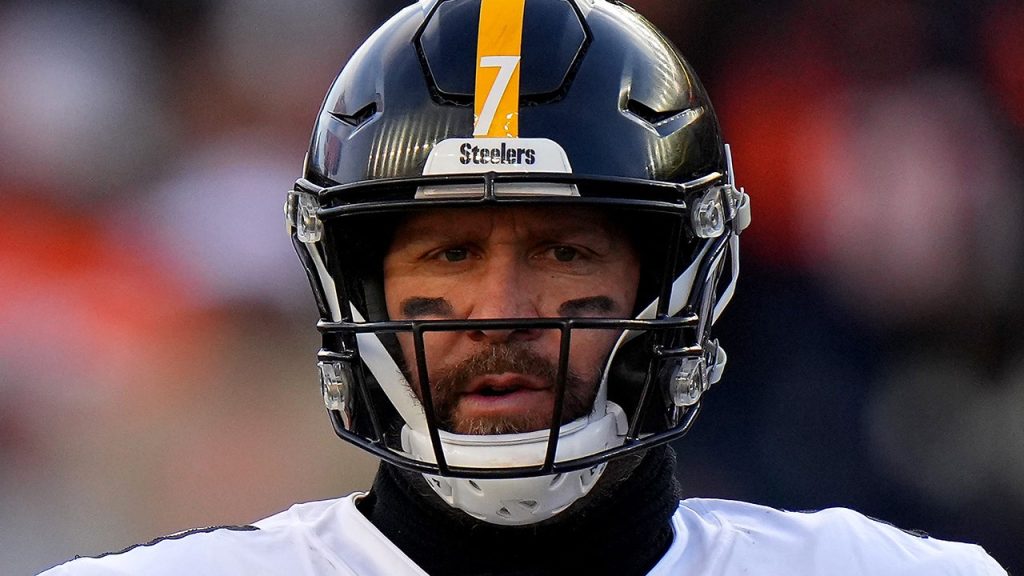The NFL’s increasing penchant for scheduling games on Christmas Day has sparked controversy, particularly regarding the compressed timeframe it forces upon some teams. This year, Christmas falls on a Wednesday, leading to the unusual scheduling of two games on the holiday. This has resulted in a demanding schedule for four teams, including the Pittsburgh Steelers, who played the previous Saturday and are now slated to play on Wednesday. This compressed schedule, equivalent to the quick turnaround faced by teams playing on Thursday after a Sunday game, translates to three games in just 11 days for these affected teams. This condensed schedule has drawn criticism for prioritizing revenue over player well-being. The compressed schedule has sparked concerns about player safety and recovery.
Former Steelers quarterback Ben Roethlisberger has voiced strong disapproval of this scheduling practice, labeling it “miserable” and a clear indication that the league prioritizes profit over player welfare. He argues that compelling players to participate in such a high-impact sport three times within 11 days significantly increases the risk of injuries. Roethlisberger’s critique highlights the inherent contradiction between the NFL’s stated commitment to player safety and its scheduling practices. He points out that the league’s efforts to minimize injuries through rule changes, such as modifying kickoff procedures and penalizing hip-drop tackles, are undermined by forcing players into a grueling schedule that elevates the risk of injury. This compressed schedule, he argues, jeopardizes player health and contradicts the league’s purported concern for player safety.
Roethlisberger is not alone in his concerns. Kansas City Chiefs quarterback Patrick Mahomes has also expressed reservations about the demanding schedule, acknowledging the physical toll it takes on players. While recognizing the professional obligation to perform, Mahomes admitted that playing so many games in such a short period is not ideal for player health and recovery. This sentiment underscores the widespread concern among players about the potential for increased injuries due to the compressed schedule. Mahomes’ statement reflects a broader acknowledgment that the physical demands of professional football necessitate adequate recovery time, which is compromised by such tight scheduling.
The scheduling conflict highlights a fundamental tension between the NFL’s commercial interests and the well-being of its players. While the league seeks to maximize viewership and revenue by scheduling games on holidays like Christmas, this approach disregards the physical demands placed upon players and the increased risk of injuries. This prioritization of profit over player safety raises ethical questions about the league’s commitment to player welfare. The compressed schedule underscores the inherent conflict between the league’s business objectives and the health and safety of its players.
The controversy surrounding the Christmas game schedule also reignites the ongoing debate about player safety in the NFL. The league has implemented various rule changes and initiatives aimed at reducing injuries, but critics argue that these efforts are undermined by scheduling practices that increase the risk of injury. The compressed schedule exemplifies this contradiction, highlighting the tension between the league’s stated commitment to player safety and its pursuit of revenue-generating opportunities. The debate underscores the need for a more comprehensive approach to player safety that considers the impact of scheduling decisions.
The situation facing the Steelers and other teams playing on Christmas highlights a broader issue within the NFL: the balance between maximizing revenue and ensuring player well-being. The league’s pursuit of lucrative holiday game slots has created a scheduling conflict that puts players at increased risk of injury. This conflict underscores the need for greater consideration of player health and safety in scheduling decisions. The Christmas game controversy sheds light on the ongoing tension between the NFL’s financial interests and the physical well-being of its players. It raises fundamental questions about the league’s priorities and its commitment to player safety.

